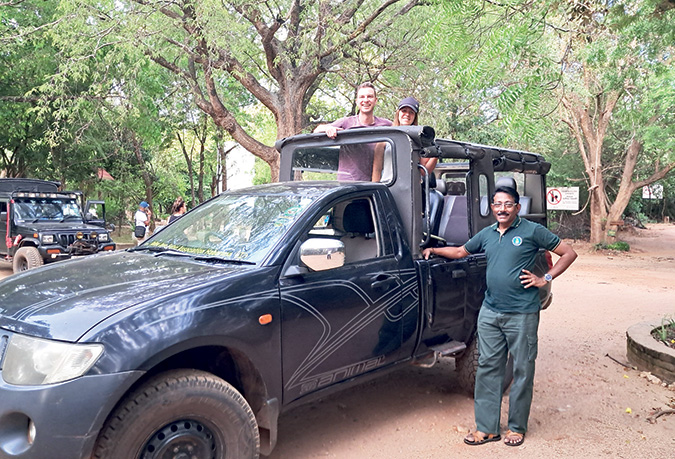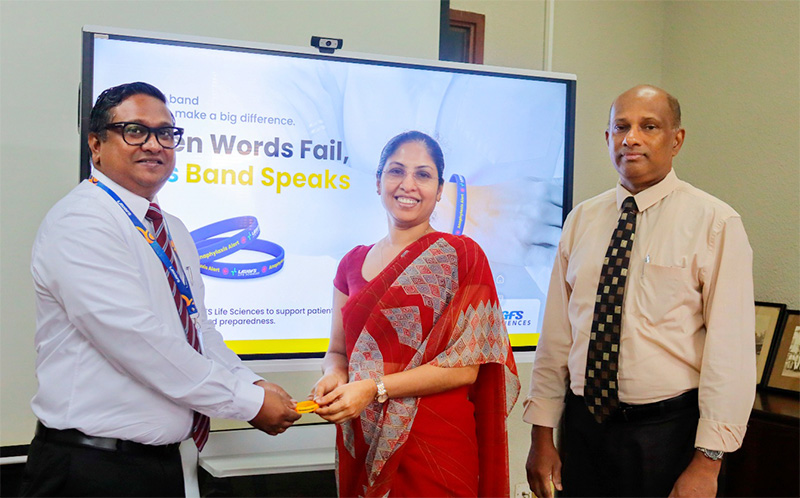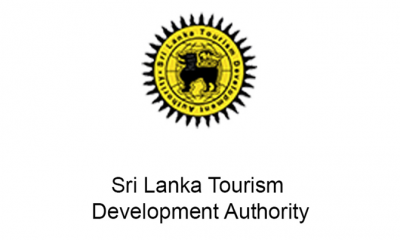Business
Sri Lanka Tourism urged to advance ESG goals with the help of multilateral banks

‘Tourists are keen on reducing their carbon footprint when they travel’, say tourist chauffeur guides
by Sanath Nanayakkare
It is high time Sri Lanka Tourism Development Authority (SLTDA) showcased the seriousness of the government’s commitment to reducing greenhouse gas emissions by deploying electric vehicles (EVs) for tourist transportation, says Ranjith Sudasingha, Vice President of the Chauffeur Tourist Guide Lecturers’ Association.
“One notable way SLTDA can showcase its true commitment to the above cause is by helping our members to get EVs best suited for road trips taken by foreign visitors during their holiday in the country. By actively participating in the Environmental and Social Governance (ESG) goals, SLTDA can demonstrate its leadership in addressing environmental challenges and meeting the expectations of eco-conscious foreign visitors who want to travel in environmentally-friendly vehicles because of the positive impact it has on the environment.”
When asked whether he thought the government had the capacity to allocate foreign exchange for the importation of EVs for tourist transportation, he says,” We understand that the government can’t ask the local banks or the Treasury to provide financing to import EVs for the purpose because of its fiscal consolidation programme and tight foreign reserves management programme. However, if SLTDA is truly interested in boosting tourism revenue and thereby increase foreign inflows to the country, it needs to take the green tourist transportation initiative seriously and find a smart way to mobilize the funds.”
He points out that climate finance provided by Multilateral Development Banks (MDBs) is a key source that SLTDA can tap into. He cites MDBs such as the World Bank, ADB, European Investment Bank (EIB) and the Asian Infrastructure Investment Bank (AIIB) whose global climate finance exceeded $98 billion in 2022 for low-income and middle-income economies.
“These MDBs allocate funds for the purpose every year in line with the UN Climate Change conference (COP21) which Sri Lanka is also a signatory to. Therefore, SLTDA should be able to tap those funds and help us get EVs through soft loans at a concessional duty rate in order to facilitate emission-free tourist transportation.”
“As chauffeur guides we connect with the visiting tourists like no one else does. So we know how keen they are in reducing their carbon footprint when they travel. They come to Sri Lanka because travelling in this country is an exciting and memorable experience for them. But in the midst of all the fun, they are not ready to forget how their holiday may impact the climate.”
“Today’s discerning tourists want to see us treat Mother Nature with the respect she deserves. Nevertheless a large portion of tourist transportation comes from quite old fossil-fuel-powered vehicles and EV charging points are few and far between. This is concerning to the tourists due to its contribution to pollution and global warming. Tourists not only want to stay in green hotels but also want to see green travel integrated into the key elements of sustainable tourism. So the challenge before us is; how can Sri Lanka better meet the needs of informed travellers who demand green transportation and provide them with modern EVs for travel across the country.”
“On the other hand, with fossil fuel prices high in Sri Lanka, EVs can make a better offer for tourists to reduce their travel spending during their stay. It will help attract more and more budget tourists to Sri Lanka. You see, deploying an EV fleet for tourism transportation is not just an obligation towards Climate Change and Global Warming. It would be a smart tourism business strategy because it would appeal to a significant niche in the global tourism marketplace.”
“Currently, our Association members are paid lower than what three-wheelers charge per kilometer. This is a pathetic situation given our running costs. The Destination Management Companies (DMCs) give attractive rental rates to tourists to stay competitive in the business. We have to suffer that loss in silence. We were battered by the pandemic, the economic crisis and the long lean periods of tourism and now we have reached the end of our tether as our requests to this effect have fallen on deaf ears at the SLTDA and the Ministry of Finance.”
“Let me just sum up the whole message”, the veteran chauffeur tourist guide says,” If the authorities can help us get duty-free EVs through soft loans arranged with the MDBs, it will derive four direct benefits. No.1. It will help contribute to Sri Lanka’s emission goals for our planet. No 2. Tourists will identify Sri Lanka Tourism as a truly environmentally-conscious brand and tourist arrivals will grow significantly. No.3. Our Association will be able to sustainably provide cozy rides to tourists while delivering our service at a reasonable profit. No.4. Once such a project is in effect, Sri Lanka Tourism Promotion Bureau (SLTPB) could use a powerful marketing tagline that cuts right to the point in just 7 words; “Sri Lanka Tourism Transportation Turns to Green”.
Business
Norochocholai coal-fired power complex seen as facing staggering financial losses

Sri Lanka’s first and largest coal-fired power complex at Norochcholai is staring at mounting financial losses running into millions of rupees as low-quality coal imports, rejected shipments and unusable stockpiles disrupt operations and expose deep flaws in coal procurement, power sector and environmental experts warned yesterday.
Energy sector sources told The Island Financial Review the economic damage has already begun, with rejected coal stocks, delayed payments and declining plant efficiency forcing the system to absorb losses from under-performance, additional handling costs and the risk of turning to more expensive backup generation.
Insiders estimate that continued reliance on sub-standard coal could result in tens of millions of rupees in losses per day, once reduced output, higher fuel burn and maintenance costs are factored in.
At the centre of the controversy is a recent coal shipment procured by the Lanka Coal Company (LCC), which has come under intense scrutiny after laboratory tests reportedly showed ash content of around 21%, far exceeding the 16% maximum allowed under tender conditions.
While parliamentary debate has focused narrowly on whether the coal meets the required calorific value, experts stress that excessive ash alone is sufficient grounds for outright rejection, regardless of calorific performance.
The situation worsened after coal stocks at the Norochcholai Coal-Fired Power Complex were recently rejected, leaving shipments in limbo and payments withheld. Power sector officials say this has resulted in logistical losses, demurrage risks and operational uncertainty, while existing low-quality coal stockpiles continue to deteriorate in storage.
“Coal that does not meet specifications is not just unusable — it becomes a financial liability, a senior electrical engineer said.
High-ash coal reduces boiler efficiency, increases fly ash generation and accelerates wear on ash handling systems, electrostatic precipitators and boilers — translating into higher maintenance costs and forced outages. Industry analysts warn that these hidden costs ultimately find their way into CEB losses or consumer tariffs.
Environmental Scientist Hemantha Withanage warned that accepting or burning such coal would push Norochcholai into a new environmental crisis, with serious consequences for communities in Norochcholai, Puttalam and surrounding areas.
“This is not just about calorific value. High ash coal means significantly more fly ash, Withanage told The Island Financial Review. “With low moisture and excessive ash, particulate matter spreads easily, contaminating air, soil and water. This is a massive ecological threat that will directly affect public health.”
He stressed that fly ash contains toxic heavy metals and fine particulates linked to respiratory illness and long-term environmental degradation. “If tender conditions are ignored, the cost will be paid by communities, not the suppliers, Withanage said.
Critics say the crisis exposes serious weaknesses in coal procurement oversight, with questions now being raised about supplier selection, quality verification and accountability. They argue that repeatedly importing low-quality coal — only to reject it or burn it at reduced efficiency — amounts to systemic mismanagement of public funds.
By Ifham Nizam
Business
IRCSL launches ambitious mission to transform Sri Lanka’s insurance sector

In a groundbreaking initiative, Insurance Regulatory Commission of Sri Lanka (IRCSL), announced an ambitious mission aimed at transforming the insurance industry into a cornerstone of national economic resilience and social stability.
To address this, the IRCSL will launch a nationwide education campaign titled “Insurance for All: For a Secure Future,” focusing on enhancing financial literacy across the country said Dr. Ajith Raveendra De Mel, the newly appointed Chairman IRCSL. Few sample events have already commenced last year in Matara, Jaffna and Kilinochchi that have set a strong precedent for future initiatives. “The positive response from participants highlighted the strong need for direct engagement and community-level awareness,” he said.
The IRCSL has also partnered with the Ministry of Education to integrate insurance literacy into the national curriculum, starting as early as Grade 5. This initiative aims to embed core concepts of risk management and financial protection, preparing students for future roles in the insurance industry. Complementing educational efforts, the IRCSL is also hosting an Inter-University Quiz Competition focused on insurance and financial literacy, aiming to engage university students and cultivate future thought leaders in the sector. Additionally, an e-Newsletter will keep stakeholders informed about industry updates and regulatory developments.
Dr. De Mel emphasized that this transformation it is not just about increasing insurance penetration, currently at a mere 1.1%, but about fostering a financially literate society where every citizen, family, and business is shielded from unforeseen risks. He said “Our mission is to cultivate a fully insured, financially literate, and future-ready society. The journey ahead involves profound regulatory, technological, and educational reform to create a modern, transparent, and robust regulatory environment that earns public trust while promoting innovation and sustainable growth in the industry.”
He pointed out the critical need for awareness, noting that many Sri Lankans perceive insurance as complex or exclusive to the wealthy. “We need to change how people think about insurance. Our goal is to make it simple, relatable, and accessible to everyone, particularly in rural and underserved communities,” he explained. The IRCSL will collaborate closely with the Insurance Association of Sri Lanka (IASL), the Sri Lanka Insurance Brokers Association (SLIBA), and the Sri Lanka Insurance Institute (SLII) to ensure that the message of financial preparedness reaches all corners of the nation. As Sri Lanka stands on the brink of an insurance transformation, Dr. De Mel’s vision promises a secure future driven by informed financial decisions and enhanced protection against life’s uncertainties.
The IRCSL is also focusing on digital transformation, enhancing operational excellence within the insurance sector. Key initiatives include establishing a Centralized Motor Insurance Database to improve transparency and efficiency in motor insurance, and advancing health insurance through digital integration, including standardized disease coding and electronic health records.
To ensure global competitiveness, the IRCSL is benchmarking against international best practices. A recent study tour to India has provided valuable insights into implementing risk-based supervision and capital frameworks, as well as developing accessible insurance products for underserved communities.
As the IRCSL approaches its 25th anniversary, it emphasizes the importance of staff development and alignment with other financial regulatory bodies to maintain high professional standards. The upcoming OECD/ADBI Roundtable on Insurance and Retirement Savings in Asia will further position Sri Lanka as a leader in insurance discussions, fostering regional collaboration and innovation.
by Claude Gunasekera
Business
Sri Lanka’s first public allergy awareness wristbands

LAUGFS Life Sciences, in collaboration with the Medical Research Institute (MRI), Colombo, has launched Sri Lanka’s first-ever publicly driven allergy awareness wristbands, a groundbreaking initiative aimed at improving patient safety and preparedness in medical emergencies. The wristbands provide essential information about drug sensitivities, allowing healthcare professionals to respond quickly and effectively when time is critical.
The official handover ceremony featured distinguished medical experts, including Dr. Dhanushka Dassanayake, Consultant Immunologist and Head of the Department of Immunology – MRI, Dr. Rajiva De Silva, Senior Consultant Immunologist – MRI and Dr. Prabath Amerasinghe, Deputy Director – MRI, marking a historic milestone in patient care in the country.
Commenting on the initiative, Dr. Rajiv Perera, CEO of LAUGFS Life Sciences, said, we are proud to partner with the Medical Research Institute to launch Sri Lanka’s first-ever publicly driven allergy awareness wristbands. This initiative underscores our commitment to patient-centric healthcare by providing critical information that can save lives during emergencies. We believe that thoughtful collaborations like this can have a meaningful impact on patient safety, and we look forward to expanding the program to cover additional drugs and allergens, further advancing healthcare standards across the country.
-

 News2 days ago
News2 days agoSajith: Ashoka Chakra replaces Dharmachakra in Buddhism textbook
-

 Business2 days ago
Business2 days agoDialog and UnionPay International Join Forces to Elevate Sri Lanka’s Digital Payment Landscape
-

 Features2 days ago
Features2 days agoThe Paradox of Trump Power: Contested Authoritarian at Home, Uncontested Bully Abroad
-

 Features2 days ago
Features2 days agoSubject:Whatever happened to (my) three million dollars?
-

 News2 days ago
News2 days agoLevel I landslide early warnings issued to the Districts of Badulla, Kandy, Matale and Nuwara-Eliya extended
-

 News2 days ago
News2 days agoNational Communication Programme for Child Health Promotion (SBCC) has been launched. – PM
-

 News2 days ago
News2 days ago65 withdrawn cases re-filed by Govt, PM tells Parliament
-

 Opinion4 days ago
Opinion4 days agoThe minstrel monk and Rafiki, the old mandrill in The Lion King – II

























